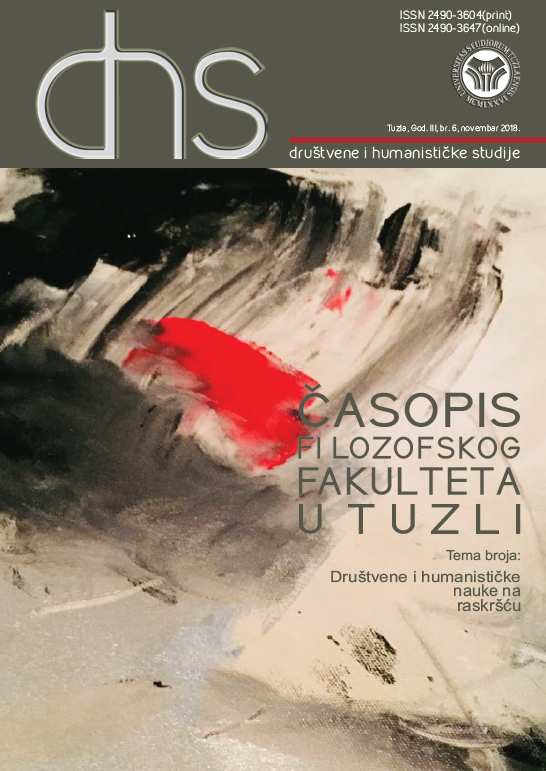Akademsko osoblje - između stabilne odluke o ostanku i nesigurne projekcije o odlasku sa fakulteta
Academic Staff – Between A Stable Decision To Stay And An Insecure Projection Of Departure From The Faculty
Author(s): Mirna MarkovićSubject(s): Social Sciences, Psychology, Higher Education
Published by: Filozofski fakultet Univerziteta u Tuzli
Keywords: academic staff; intention to leave; the role of the management; a climate of trust; the psychological capital of a university; psychological contract;
Summary/Abstract: Academic staff is the most important resource of the university, and as such determines its success in meeting the traditionally defined mission: building and disseminating knowledge aimed at breeding, training and upbringing the most important resource of the society - people. For this reason, any unplanned voluntary departure from a university can be understood as a waste of intellectual capital that is not easy to compensate. Although each departure cannot necessarily be characterized as dysfunctional (certain departures are desirable, such as temporary departures in the function of mobility in the academic community, but also the departure of incompetent employees or those who do not want or cannot adapt to the organizational culture and climate of the university), can often be recognized as a symptom of the employee’s dissatisfaction that the organization often fails, intentionally or not, to identify. In addition to the obvious consequences of dysfunctional departures, from those directly perceptible and measurable (e.g. problems in organizing teaching and mentoring student work, costs associated with the process of finding adequate substitution, etc.) to less noticeable (e.g. reducing satisfaction with the workload of the remaining academic staff, greater exposure to stress caused by work, more negative organizational climate, etc.), research suggests that even thinking about possible leaving the current job can have significant effects on organizational effectiveness. An employee who is preoccupied with thinking about leaving the organization is more inclined to psychologically distance himself from the immediate social environment (working colleagues and associates), is less motivated, and less willing to effectively contribute to the operations of the organization he is working in. The aim of this paper is to draw attention to the possible contribution of perceived changes in the working conditions caused by the metamorphosis of the traditional model of the university into a corporate model, to academic staff thinking about leaving the job, and even academic careers. In this context, special attention will be paid to defining the role of the university management in maintaining (restoring) the climate of confidence as a prerequisite for the academic staff’s positive reception of any changes in the working conditions, a positive evaluation of work, and an optimistic consideration of the certainty of residency in the current job. The emphasis is on the academic staff’s trust in the perseverance of the academic community to protect the traditional values of the academy, its autonomy and dignity in the society. By maintaining a climate of trust, investing in the development and accumulation of the psychological capital of a university, and by building a positive psychological contract between the academic staff and the management, it is possible to create conditions for introducing change that will be perceived as meaningful and necessary, even when initially negatively connotated.
Journal: DHS-Društvene i humanističke studije: časopis Filozofskog fakulteta u Tuzli
- Issue Year: VI/2018
- Issue No: 6
- Page Range: 301-320
- Page Count: 20
- Language: Bosnian

